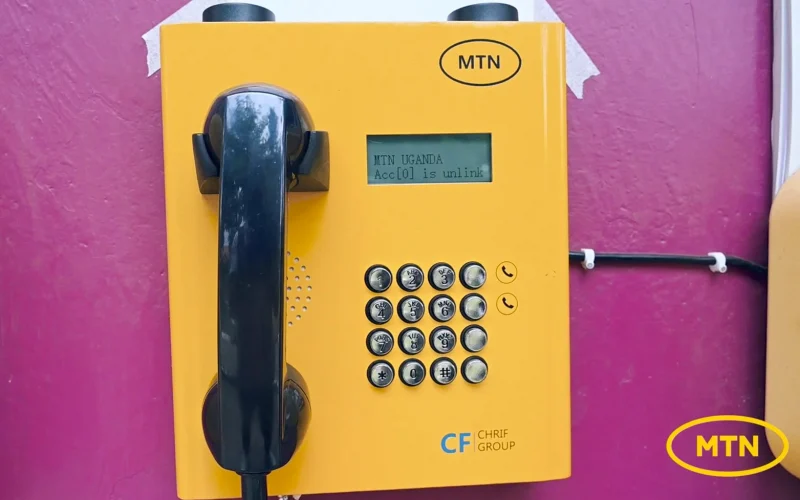By Mark Kawalya
Like many other African nations, Uganda has seen a notable increase in the adoption and use of mobile phones in recent years. Despite the fact that cell phone use has grown significantly, public payphones are still the sole way to bridge the gap for people that have traditionally been excluded. One example is the educational system in Uganda, where the majority of primary and secondary schools impose limitations on students’ phone ownership.
Payphones, are coin-operated public telephones that were invented in the late 19th century and were a common feature in many cities in the 90s and early 2000s. Prepayment is required for use and is done by inserting money (usually coins), swiping a credit or debit card, or using a telephone card. The new generation of payphones by MTN require work with digital vouchers referred to as virtual cards instead of coins as tradition had it.
MTN Uganda, the country’s largest telecommunications providers, has a mandate of ensuring that all Ugandans, regardless of their location or socioeconomic status, have access to reliable communication services. With a keen understanding of the challenges faced by communities with low smartphone penetration, MTN Uganda has introduced payphones as a solution to connect the unconnected.
Schools will be the first locations where the payphones are deployed in order to assist students to stay in contact with their loved ones and calling emergency services. Plans are also underway to install these pay phones in additional public spaces, including factories, hospitals, highways, and remote locations.
Access to communication is a cornerstone of economic development. By providing payphones in remote and underserved areas, MTN Uganda will enable small business owners to engage with customers, suppliers, and partners, fostering economic growth and creating new opportunities for employment. Furthermore, increased communication facilitates the exchange of ideas, knowledge, and skills, laying the foundation for a more vibrant and innovative local economy.








